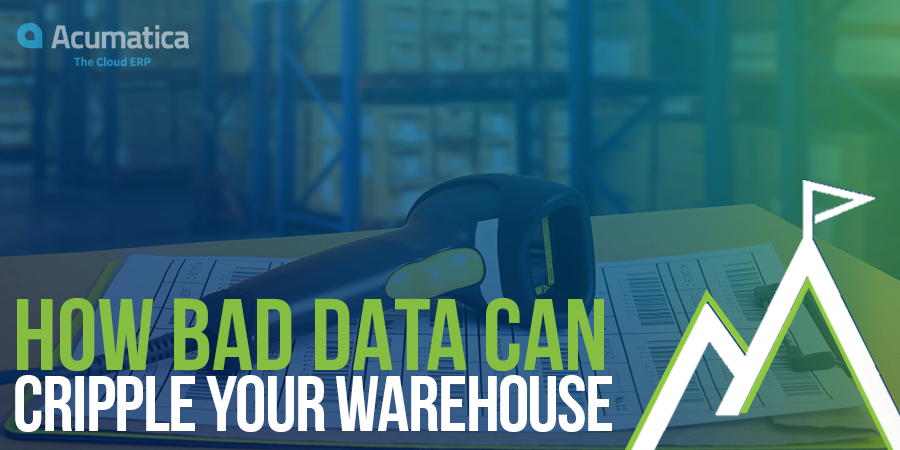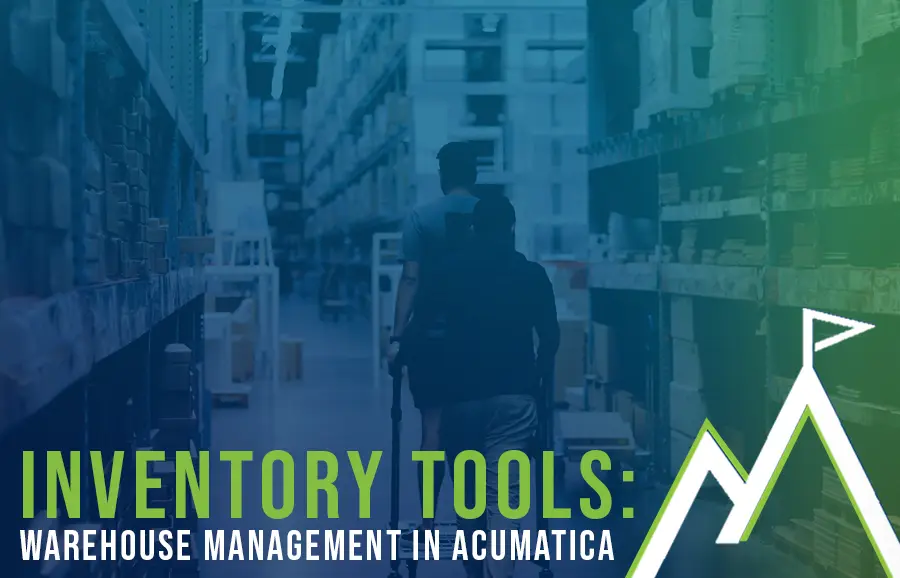How (and Why) to Create a Non-Stock Item in Acumatica
One common problem that many businesses face is the need to track non-stock items, such as rent expenses, in their ERP system. In addition to ...

In today's data-driven world, accurate and reliable information is crucial for businesses to make informed decisions. This is especially true for warehouse and manufacturing operations, where efficiency, productivity, and profitability rely heavily on effective data collection and management.
Beware of “bad data,” characterized by routine inaccuracies, manual entry errors, duplicate entries, siloed information, and more. It can have severe consequences that hinder the overall performance and success of a company. Here are some of the potential consequences.
Accurate data is the foundation for sound decision making. When warehouse and manufacturing data is flawed, decision-makers are forced to rely on inaccurate or incomplete information, leading to poor judgments. For example, inaccurate inventory records may result in under- or over-stocking, leading to missed sales opportunities or excessive carrying costs. Additionally, incorrect product specifications can lead to manufacturing errors, quality issues, and customer dissatisfaction.
Bad data collection can significantly impact operational efficiency. Manual entry errors, such as typos or transposed numbers, can cause delays, inaccuracies, and inefficiencies across various processes. These errors can lead to incorrect order fulfillment, delayed shipments, and wasted resources. Moreover, duplicate entries can lead to confusion, as employees may rely on different sets of data, resulting in miscommunication and costly mistakes.
The financial implications of bad data collection should not be underestimated; they can span all departments. Inaccurate data can lead to unnecessary expenditures, including extra labor costs, increased waste, and additional inventory carrying costs. For instance, if the manufacturing plant relies on flawed production data, it may overproduce or produce faulty items, resulting in wasted materials, labor, and energy expenses. Similarly, inaccurate customer data can lead to higher marketing costs as campaigns target the wrong audience, resulting in poor returns on investment.
Inaccurate data can even have a profound impact on customer relationships. Incorrect contact information can lead to communication errors, causing missed or delayed deliveries, invoicing problems, or customer service issues. These problems erode customer trust and loyalty, potentially resulting in lost business opportunities and a damaged reputation. The customer experience is more important than ever; even a single negative interaction can have far-reaching consequences.
Warehouse and manufacturing operations are typically subject to some regulations and compliance standards. These vary across industries, of course, but accurate data is the foundation of a successful audit. Bad data collection can lead to compliance issues, as inaccurate or incomplete data fails to meet the required reporting standards. This can result in penalties, legal consequences, and damage to the company's reputation. Furthermore, when auditors or regulatory bodies question the accuracy of the data, it can consume significant time and resources to rectify the situation.
The importance of accurate and reliable data collection in warehouse and manufacturing operations cannot be overstated. An end-to-end connect platform, like Acumatica cloud ERP, plus processes like data validation protocols and regular training to employees involved in data entry, can help mitigate the risks. By ensuring accurate and reliable data, businesses can enhance their operational effectiveness, reduce costs, and ultimately thrive in today's data-centric business landscape. Contact our team to learn more.

One common problem that many businesses face is the need to track non-stock items, such as rent expenses, in their ERP system. In addition to ...

Successful manufacturing businesses monitor their activities and health through Key Performance Indicators (KPIs) and technology has made this type...

Are you looking for an efficient way to manage your inventory? Acumatica might be the answer you're looking for. The video demo embedded in this blog...